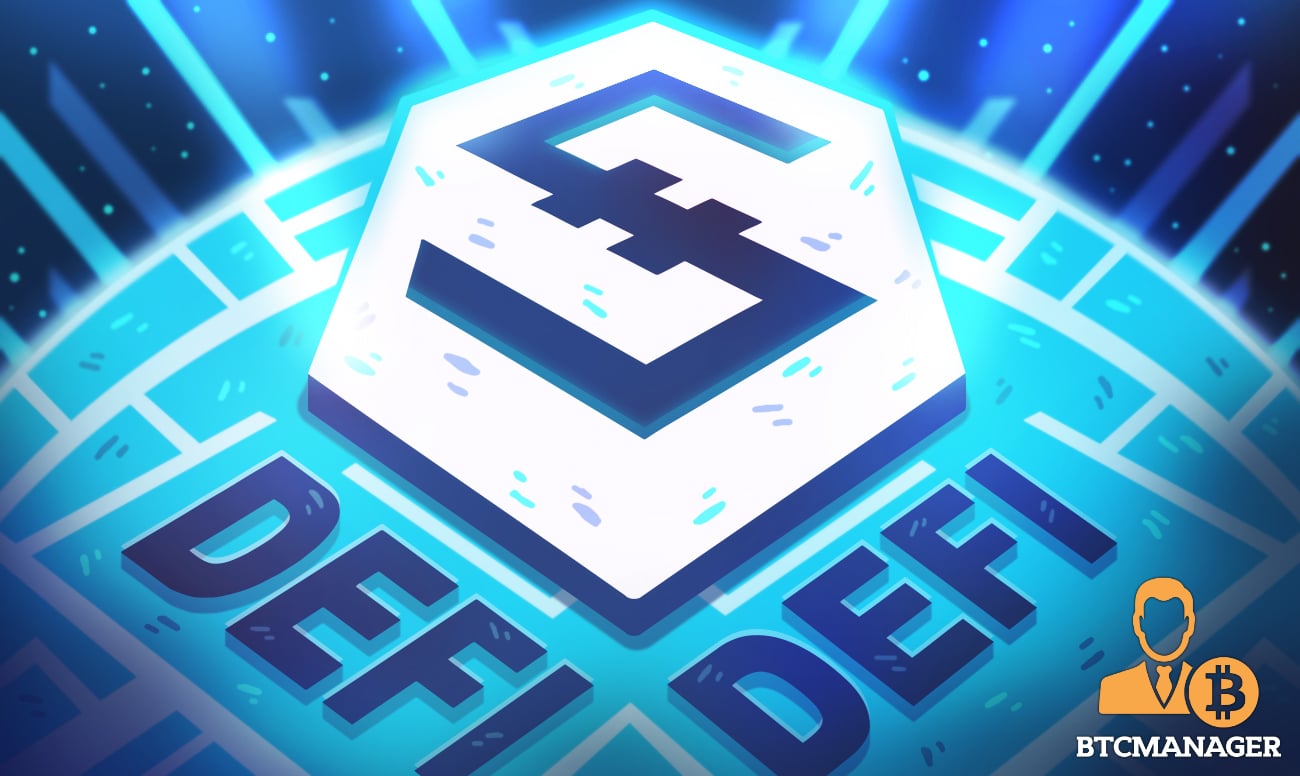IOST (IOST) Gears Up to Lead the DeFi Space

Decentralized finance, or simply DeFi, is an ambitious development wheeled by blockchain ideals. It is a notion that the traditional financial system can be replicated on a decentralized, open-source, resilient environment, smoothly operating without a middle man. In this regard, the core objective of these applications is to create a reliable and efficient marketplace while remaining non-custodial, secure, and active.
For DeFi dApps to satisfactorily compete with traditional applications, the underlying network must be fast, meshing perfectly with the objective of the dApp launchers. In the mid of competition, IOST — an enterprise-grade, decentralized, and ultra-fast network oiled with the Proof-of Believability consensus algorithm is walking the talk less than a month after updating its roadmap. Their latest focus is on DeFi. Its goal for the remainder of the year is to build a vibrant ecosystem by offering developer-friendly features and environments.
DeFi Expansion
This is strategic and its execution is the necessary base over which subsequent applications and services will be built on.
Already, the amount of coins locked in Ethereum continues to balloon. At the time of writing, over $4.4 billion worth of ETH was locked as collateral in different DeFi applications according to Defi Pulse. And it was largely expected. What DeFi represents is freedom.
It is efficiency; precisely explaining why the DeFi market has grown seven folds in the last three years, driving interest from different development teams, institutions, and creators looking to add more innovation in a nascent but a promising space.
By adopting a double prong approach, the IOST development team has the long term trend of DeFi projects. Not only are they working on compliance but the team is presenting to various projects irresistible offers only made possible via a scalable and a high throughput network.
For instance, in the last few weeks, they have been active, striking deals with DeFi projects and gradually building a presence in the scene. From what can be gleaned, IOST is building influence through their rich DeFi portfolio.
Their well-executed plan can be traced back to 2019. Then, the development team hatched a plan to make inroads to the budding space with tailwinds from the very principles of blockchain: collaboration.
By striking symbiotic deals with strategic partners and promising on-chain projects from all over the world, they realized that IOST will cement its position, even supplement activities of competing platforms for the better good of the space.
Building Influence through Strategic Partnerships
In February 2019, the IOST team began by developing a reliable DeFi ecosystem base with a crystal goal of building the first public chain with in-built DeFi support.
Their pressing need was to develop and improve on the network’s cross-chain stablecoin, the iUSD, while concurrently working on its DEXes and other cross-chain solutions.
By March 2019, they had optimized IOST decentralized staking mechanism which paved the way for more DeFi experiences.
In April 2019, they launched the iUSD and struck a strategic partnership with Force protocol to further enrich on-chain application scenarios. Soon after, the first DEX was launched in May 2019. Even more, partnerships were made through to the end of the year.
Of note, IOST forwarded grants to Singapore’s government authority for the creation of interoperability solutions.
Interoperability and User Experience Enhancement
To further enhance user DeFi experience, in the first half, the IOST cross-chain transfer bridge was optimized and the otb-Trade was activated significantly the IOST DEX layout.
Specifically, otb-Trade aims to provide safe services for all users by ensuring that only tokens from well-known projects pass through the stringent listing process before being made available for users.
The icing on the cake, however, was their collaboration with Polkadot Parachain Bifrost in June 2020. Out of the deal, the emphasis was to magnify IOST’s interoperability capabilities by launching several DeFi cross-chain scenarios like cross-chain DeFi and transactions.
In that month, PowerDeFi, an interoperable dApp on the IOST platform was unveiled. The powerful open finance application, amongst other things, integrates with Uniswap, supports lending and staking. For what it offered, by early August PowerDeFi trading volumes surpassed $10 million.
Condensed, IOST within a short span has launched several products within the blossoming Oracles space that will easily expand DeFi capabilities on a base layer with zero transaction fees.
For instance, IOST collaboration with Chainlink—a leading decentralized oracles provider, allowed developers-building and launching cross-chain dApps on IOST, to access tamper-proof, secure, and vetted off-chain data to activation of smart contracts.
But Chainlink is not the only oracle partner. There is a partnership with DOS which was struck in Dec 2019. The goal is to “connect the IOST Dapp ecosystem with off-chain real-world data in a secure, trustworthy, and timely manner.” Then there is the collaboration with NEST that will see the protocol integrated with the IOST community ecosystem for the development of DeFi dApps.
In the lending front, IOST has a partnership with ProDeFi, Bidao, California-based Constant, and most recently with PROXI—a one-stop DeFi platform.
Onto the emerging and popular derivatives space, IOST has successfully collaborated with the Force Protocol, Liebi Pool—the first DeFi project to launch on IOST, and with Qingfeng –enabling decentralized voting.
Other noteworthy services and products that foster the growth of the IOST DeFi ecosystem include Jetstream—a Google Chrome plug-in wallet supporting IOST coins, and TokenPocket—the largest IOST wallet that supports several other coins including EOS, ETH, and BTC.
In Conclusion
Overly, and going through H2 2020, IOST plans to deepen their cooperation with emerging DeFi projects.
Towards that end, they shall offer comprehensive incubation support for high potential DeFi projects with the goal of developing a robust DeFi ecosystem.
Through the IOST cross-chain transfer bridge, they will link its users to other DeFi projects for example in platforms like Ethereum.
















